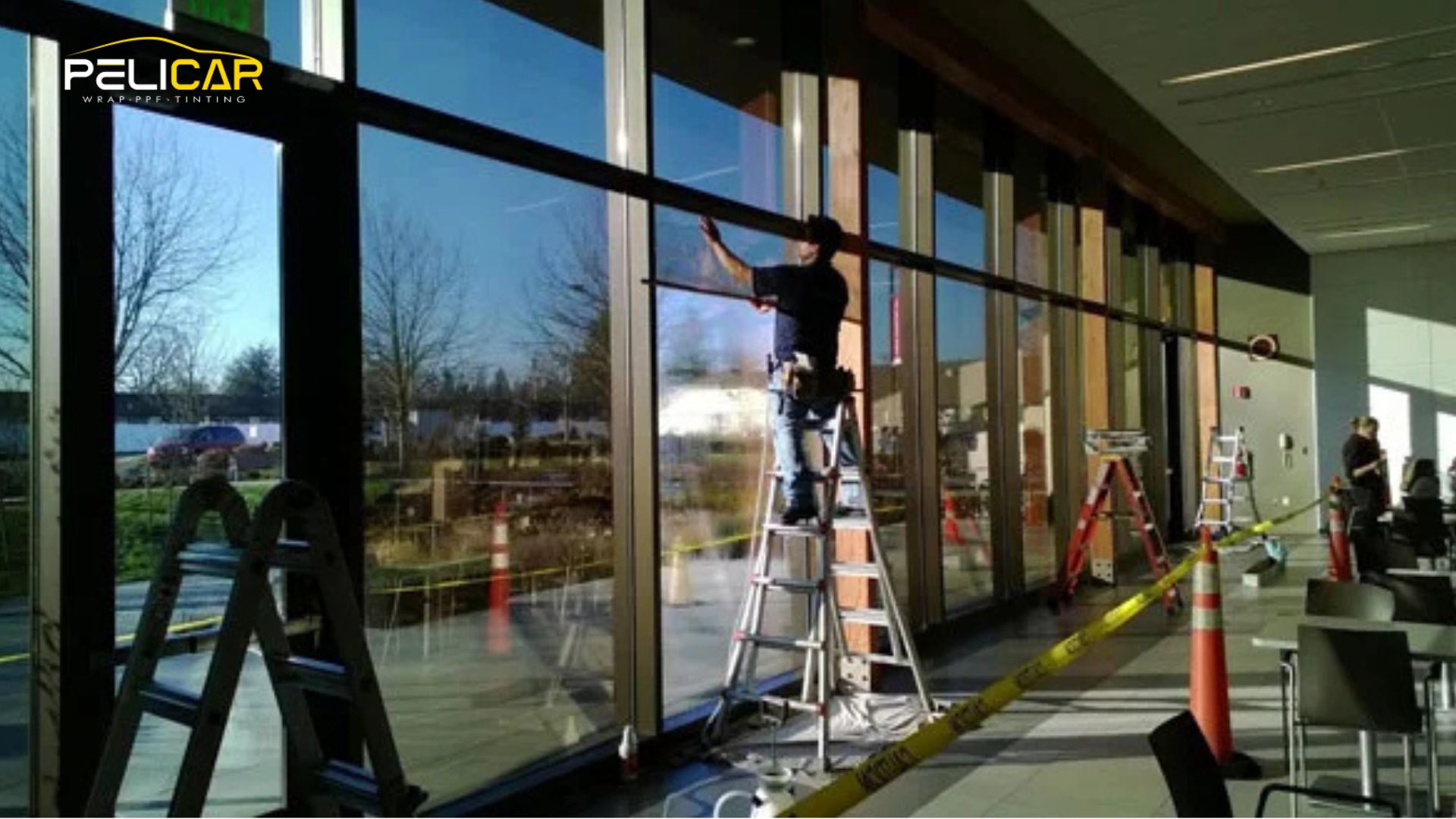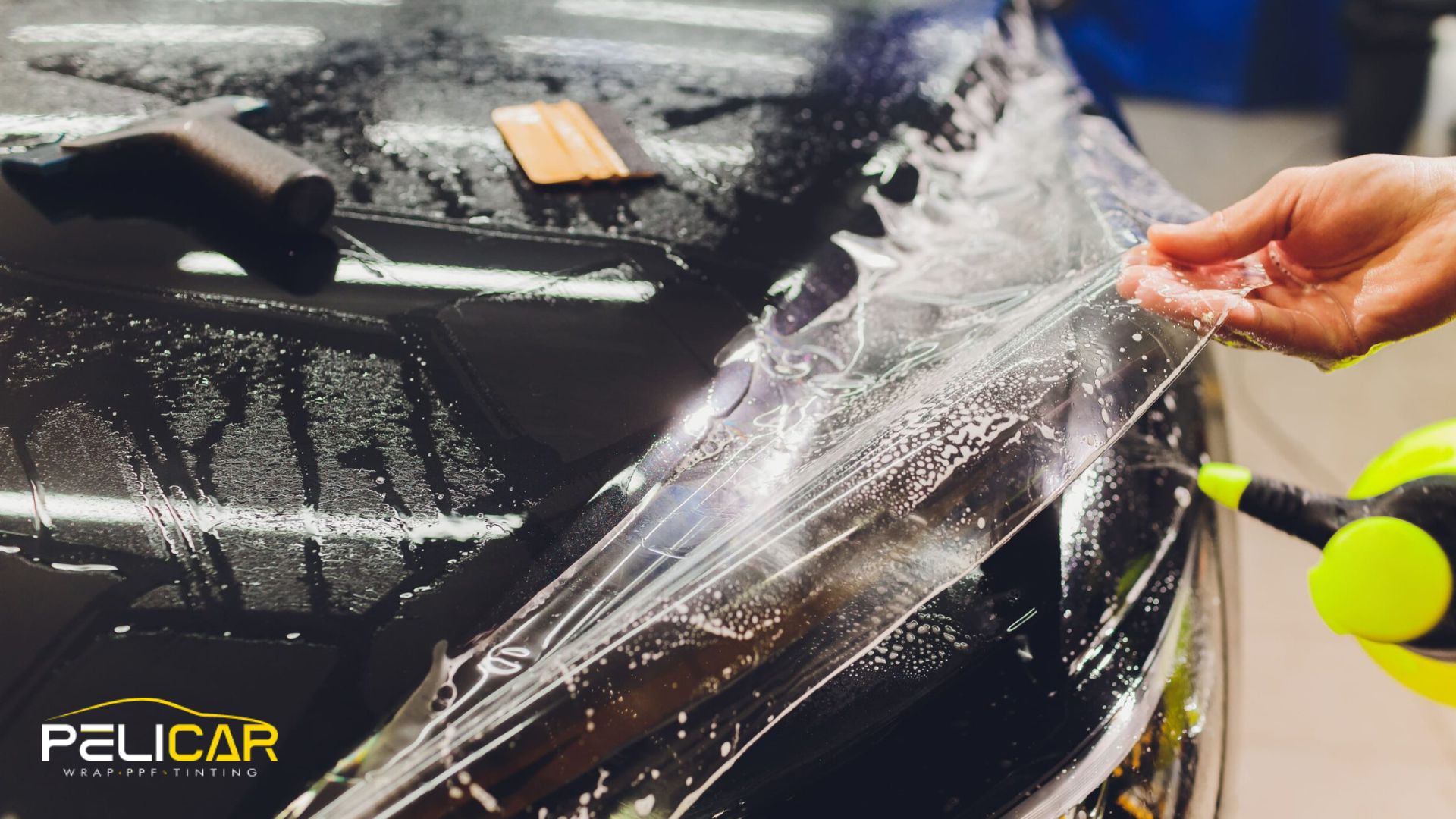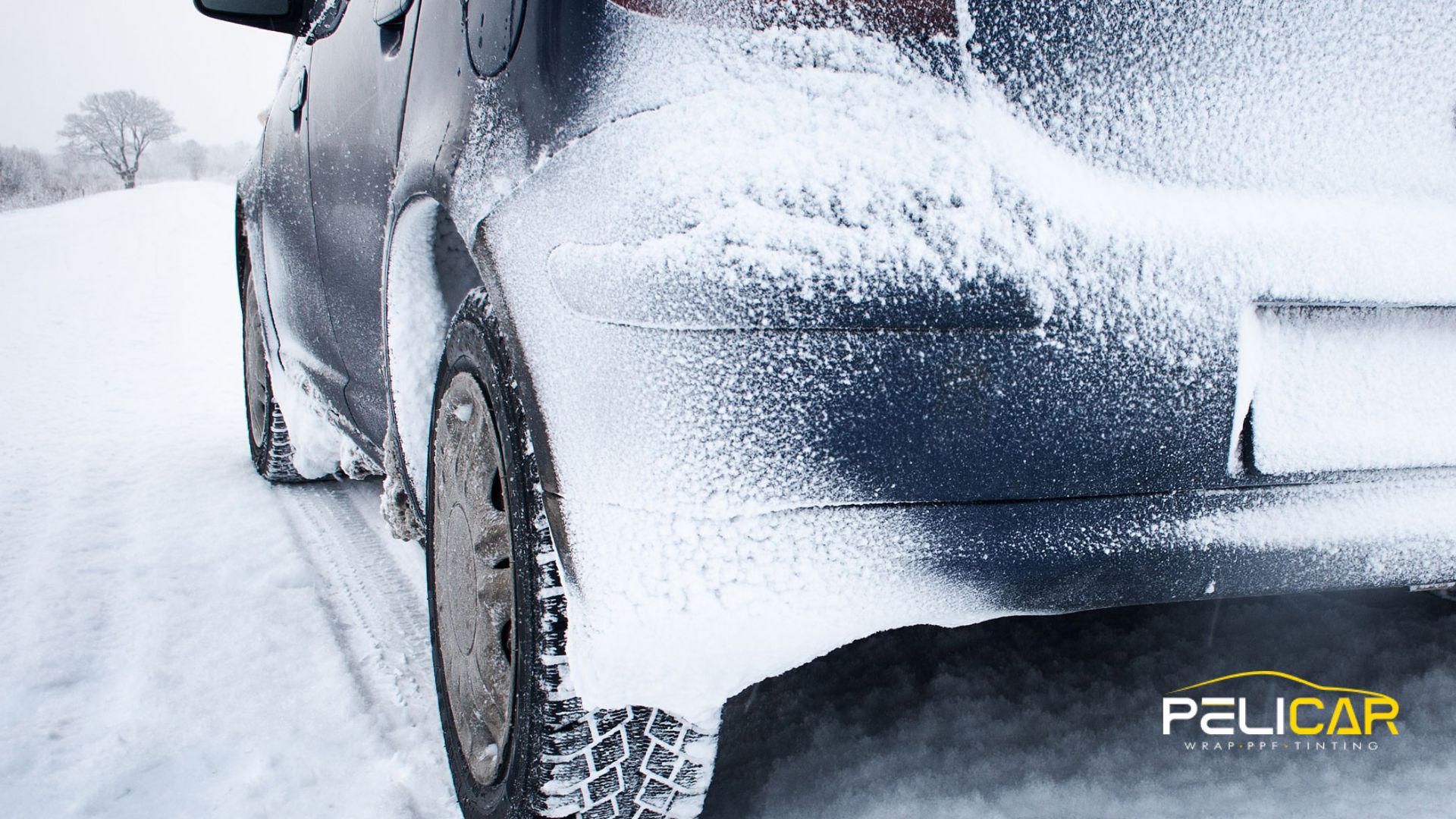From salt-covered winter roads to intense summer sun, owning a vehicle in New England means dealing with some tough conditions. Constant exposure to unpredictable weather, gravel, and road debris can quickly damage your vehicle’s paint job. That’s why many drivers are turning to Paint Protection Film (PPF)—a virtually invisible shield that offers powerful defense and long-term peace of mind. In this guide, we’ll dive into the core benefits of paint protection film and why it’s a smart choice for New England car owners looking to preserve their investment.
Why New England Vehicles Need Extra Protection
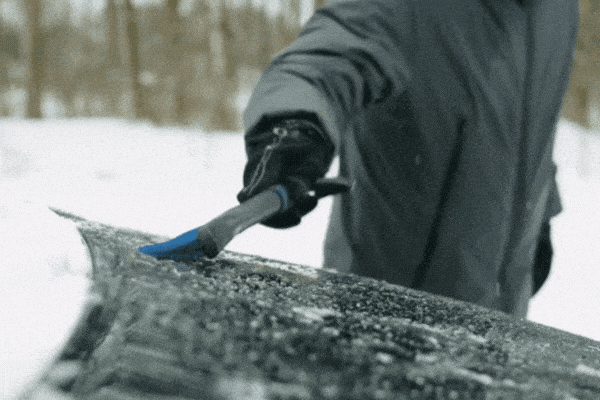
Road Debris and Harsh Winters
The roads throughout New England, especially during the colder months, are littered with gravel, salt, and sand. These materials can cause chips, scratches, and corrosion to your vehicle’s exterior. PPF acts as a rock chip protection layer, helping to absorb the impact and prevent costly damage.
Seasonal Extremes That Fade and Corrode Paint
Beyond physical abrasions, exposure to the sun, snow, and ice can lead to oxidation and paint fading. A UV protection PPF guards your car’s finish from harmful rays and harsh elements year-round, helping to maintain a vibrant appearance.
What Is Paint Protection Film?
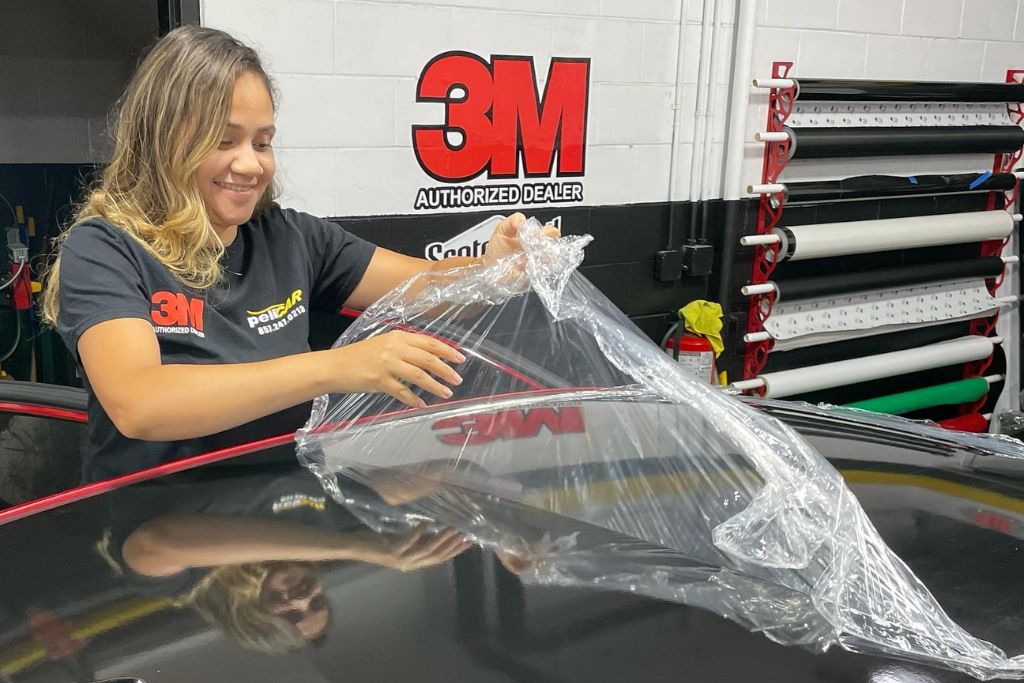
Paint Protection Film (PPF)—also known as a clear bra or automotive paint barrier—is a transparent thermoplastic urethane film applied directly over your car’s painted surfaces. Engineered for both clarity and toughness, it provides a strong, nearly invisible shield that preserves your vehicle’s showroom shine while protecting it from daily hazards.
Built-In Self-Healing and Water-Repelling Properties
High-performance PPF options, such as those offered by the team at Pelicar in Malden, feature self-healing technology. This means light scratches disappear with the application of heat—like sunlight or warm water. Plus, its hydrophobic surface repels water and grime, making car maintenance quicker and easier.
7 Core Benefits of Paint Protection Film
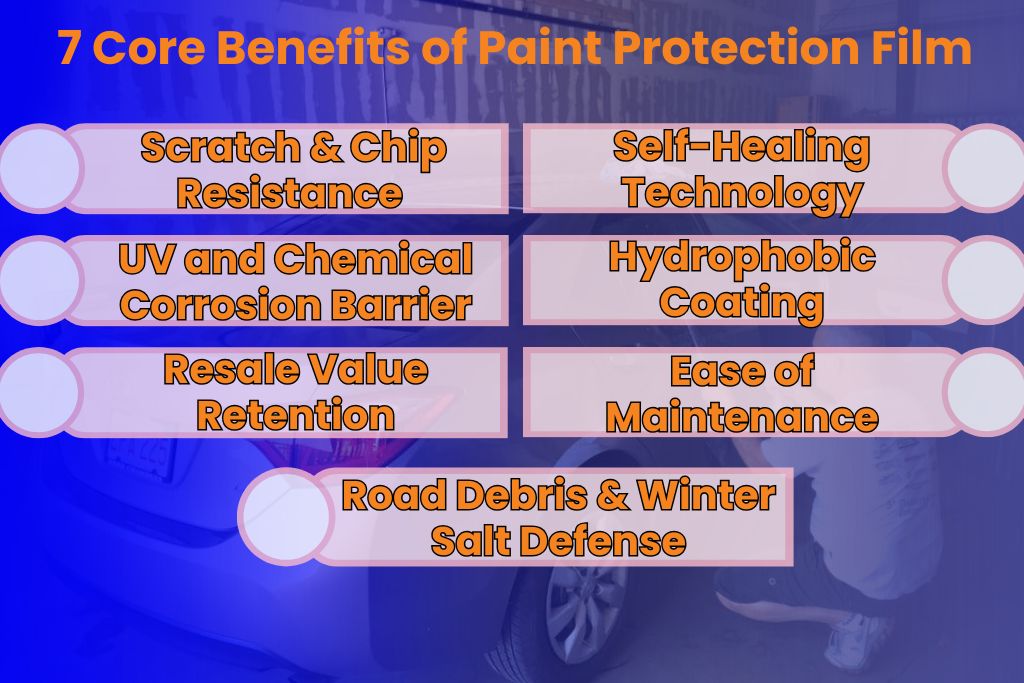
1. Scratch & Chip Resistance
New England’s rugged roads are no match for quality PPF. Acting as invisible car armor, it shields your paint from rock chips, gravel, and other abrasive materials.
2. UV and Chemical Corrosion Barrier
Equipped with UV filters and chemical resistance, PPF blocks out damage from bird droppings, sap, road salt, and acid rain—creating a comprehensive chemical corrosion barrier.
3. Resale Value Retention
A vehicle with well-preserved paint stands out in the resale market. With PPF in place, your car maintains that just-detailed look longer, helping you maintain resale value.
4. Self-Healing Technology
Thanks to a ceramic-infused top coat, surface abrasions and swirl marks heal with heat exposure, keeping your vehicle looking freshly polished.
5. Hydrophobic Coating
For drivers with limited time, this feature is a major benefit. The hydrophobic paint film repels dirt and moisture, reducing the frequency of washes and simplifying upkeep.
6. Ease of Maintenance
Whether you prefer a glossy or matte look, PPF resists stains and buildup, making your car easier to clean—no need for aggressive scrubbing.
7. Road Debris & Winter Salt Defense
Unlike wax or sealant, PPF provides lasting protection against road debris and winter salt, two of the biggest threats to vehicles in New England.
PPF vs. Ceramic Coating: What’s Right for You?
Both options protect your paint, but they serve different needs. Ceramic coatings offer a slick, water-repelling finish but lack the physical durability of PPF
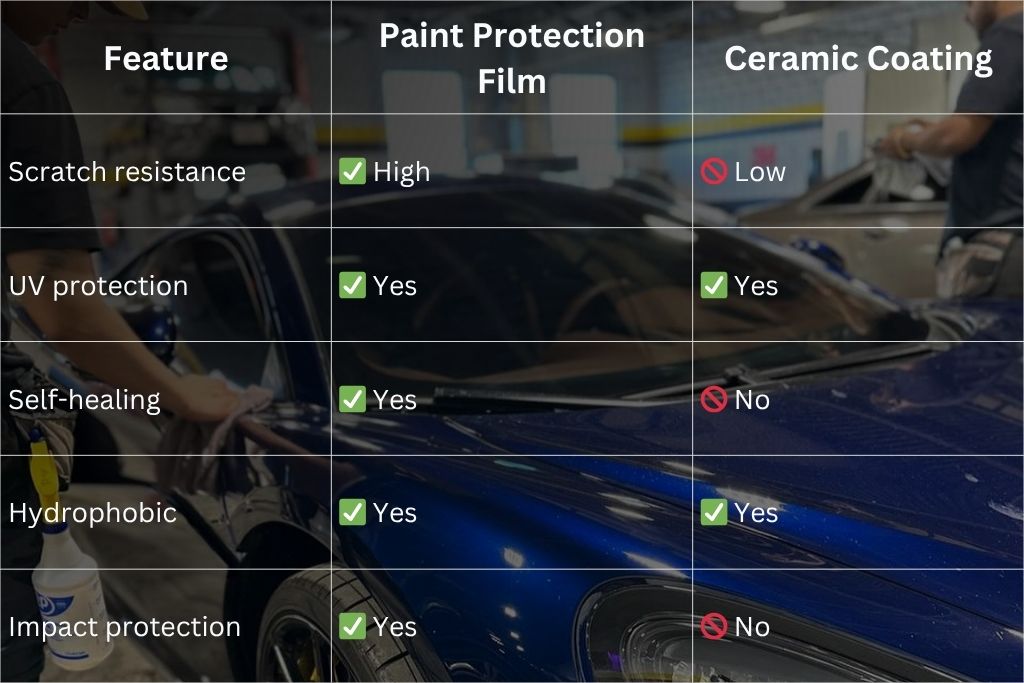
When comparing paint protection film (PPF) and ceramic coating, PPF stands out for its unmatched durability and physical protection—making it the top choice for withstanding New England’s challenging roads. Ceramic coating, on the other hand, excels at enhancing gloss, repelling water, and simplifying maintenance.
But why settle for just one? For drivers who want the best of both worlds, these two solutions can actually be combined, offering your vehicle an exceptional level of protection and shine that goes beyond what either provides alone.
Curious how that works? Ask the experts at Pelicar how you can maximize your car’s defense and appearance with a custom protection package.
Full vs. Partial Coverage: What’s Best?
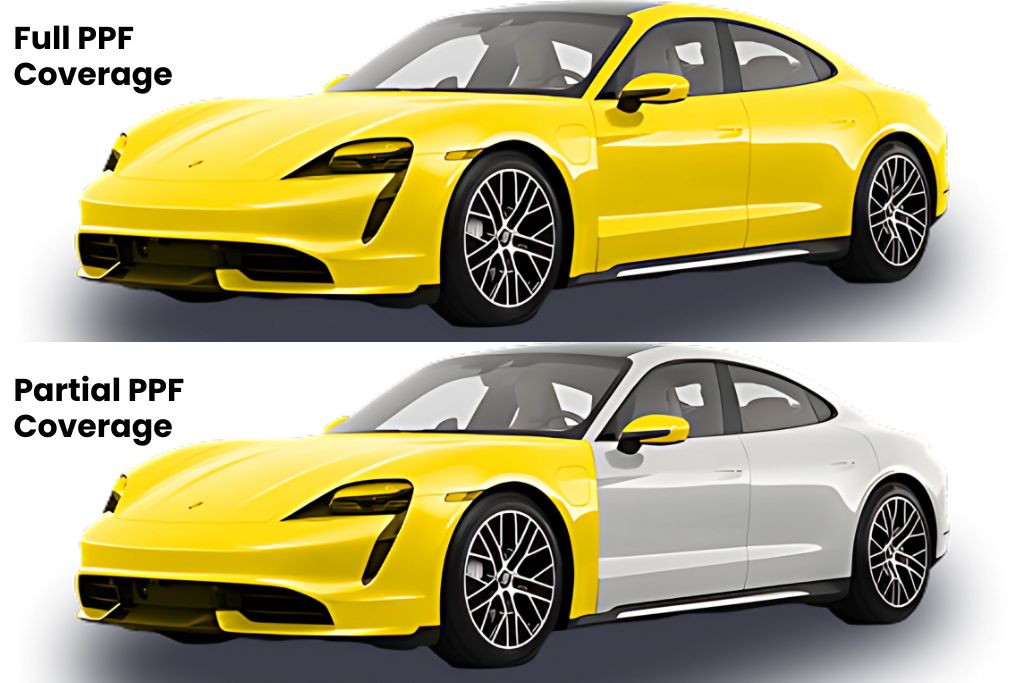
While some drivers choose full-vehicle PPF for complete protection, others prefer focusing on high-impact areas such as the hood, bumper, and side mirrors.
- Full Coverage is ideal for newer or luxury cars where preserving every inch of paint is essential.
- Partial Coverage provides a cost-effective alternative that still protects the most vulnerable zones.
Not sure which route to take? The team at Pelicar will help you find the best coverage for your needs during your paint protection consultation.
The PPF Installation Process
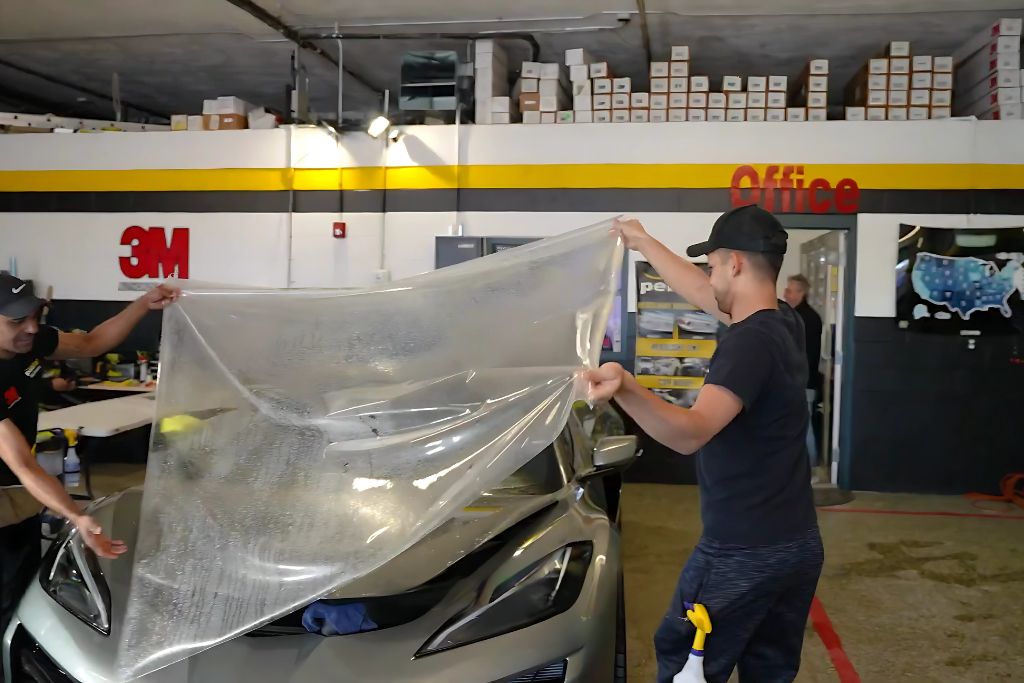
At Pelicar, every paint protection film installation is managed by seasoned technicians like Vilberto, known for their expertise and attention to detail. The process is designed to ensure flawless, long-lasting results for your vehicle:
Thorough surface cleaning and preparation: All vehicle surfaces are carefully cleaned and decontaminated to guarantee proper film adhesion.
Precision cutting with digital plotters: The film is custom-cut for your specific vehicle model using advanced technology, resulting in an exact fit.
Expert application with heat bonding: Certified installers utilize professional techniques and heat activation to bond the film smoothly to your paint, ensuring a seamless finish without bubbles or imperfections.
Final Curing and Detailed Inspection: The installation concludes with a thorough inspection and curing process, ensuring the film is perfectly set and your vehicle looks pristine.
Choosing Pelicar means trusting a team that values your investment and stands by their craftsmanship. Professional installation not only enhances the appearance and protection of your vehicle but also preserves your warranty, with many high-quality films offering up to 10 years of coverage.
Why Pelicar Is Malden’s Trusted PPF Provider
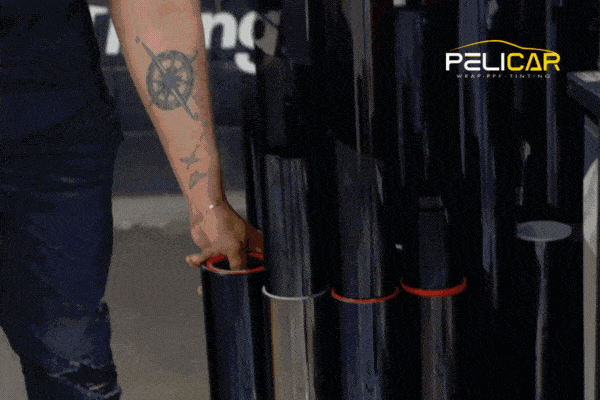
With over 30 years of industry experience, Pelicar has become a trusted name for vehicle protection in Malden, MA. As a certified 3M Pro Shop Dealer, they deliver premium-grade products and expert service in:
Their reputation is built on meticulous craftsmanship and advanced technology. If you’re ready to protect your vehicle, book your appointment here.
Final Thoughts: Is PPF Worth It?
Absolutely. From preventing chips and corrosion to simplifying car maintenance, the benefits of paint protection film make it a top choice for any New England driver. Whether you’re navigating icy winter roads or blazing summer sun, PPF ensures your car stays protected and pristine.
Ready to experience the benefits firsthand? Trust the experts at Pelicar in Malden to get the job done right.
📅 Schedule your consultation today and give your vehicle the protection it deserves.
Gravel, salt, and sand from rough roads cause frequent impact damage and abrasions.
PPF offers physical protection, while ceramic coatings mainly offer gloss and water resistance.
Advanced materials in the film heal minor damage when heat is applied.
UV rays degrade paint even on cloudy days—PPF prevents fading and oxidation.
By preserving the original paint, your car stays in better shape for future buyers.
It repels water and dirt, reducing cleaning time and frequency.
Trained technicians ensure flawless coverage and preserve the warranty.
Full wraps offer total protection, while partial wraps focus on high-risk zones.
Salt accelerates corrosion, especially on unprotected surfaces during winter.
Premium films are built to last and are backed by strong manufacturer guarantees.
Pelicar Professional Tinting, PPF and Wrap
4.7 STARS 773 Google reviews
Window tinting service in Malden, Massachusetts

